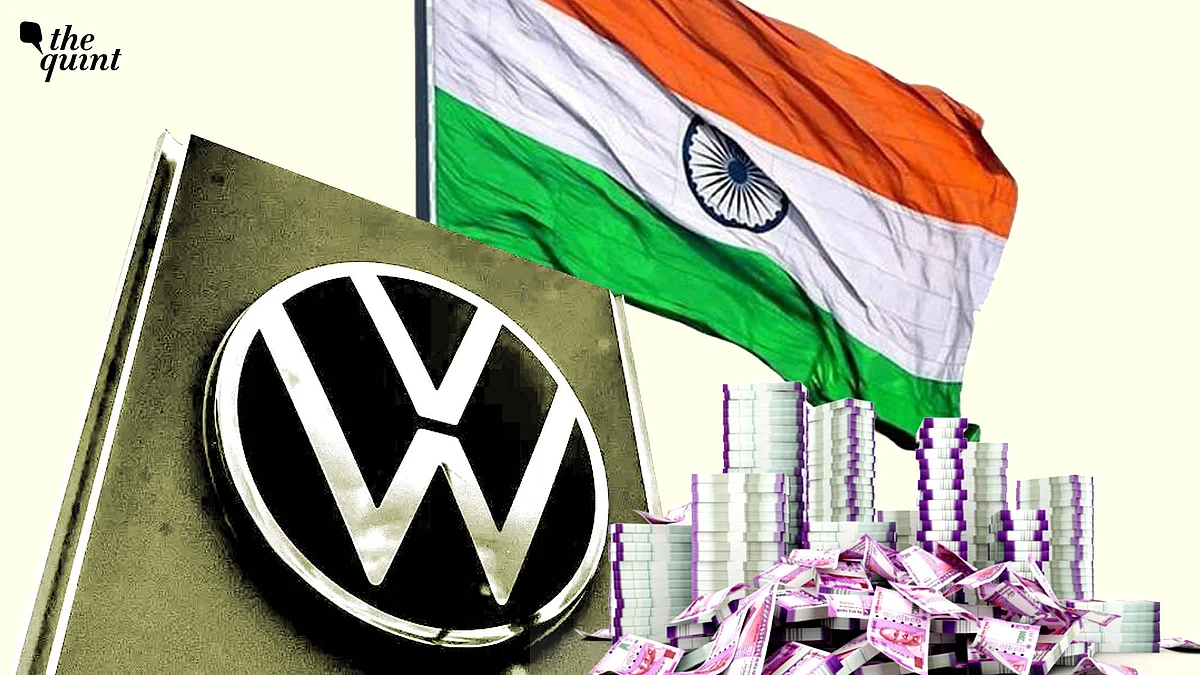
India vs Volkswagen: 'Tax Terror', Corporate Greed, or Systemic Failure?
Volkswagen may have misclassified imports as 'parts' to pay lower tariffs, but India's tax system is flawed too.

advertisement
Volkswagen and its subsidiary Škoda Auto have been in India for over three decades. Yet, they struggle to carve a niche for “German precision and quality” in the domestic car market. Sales in 2024 were lower than the previous year and accounted for barely two percent of total car sales in India, far below the market share of competing foreign brands.
Much like US President Donald Trump's vision to “Make America Great Again”, India hoped that high import tariffs would encourage foreign direct investment (FDI) for manufacturing cars.
This strategy has been effective, with foreign brands contributing to 30 percent of car manufacturing in India, and another 44 percent with Maruti Suzuki, a foreign collaboration. Home-grown manufacturers, such as Tata and Mahindra, account for the remaining 27 percent.
This amount represents a significant 7 to 14 percent of Volkswagen’s global earnings before interest and tax (EBIT) in 2024. The Indian government alleges that Volkswagen misclassified imports as “parts,” attracting a lower duty of 5 to 15 percent instead of the 30 to 35 percent applicable to completely knocked down (CKD) cars.
Oddities in the Import Tax Regime
Why have separate tax rates for the two imports? India rewards enhanced value addition by charging higher import tax for final consumer products while taxing manufacturing inputs at a lower rate. Cars priced below $40,000 attract an import duty of 60 percent, while those priced higher are taxed at 100 percent— designed to “soak the rich” enamoured of imported cars.
In contrast, domestically manufactured cars are subject to a Goods and Services Tax (GST) ranging from 28 to 50 percent, with tax rates increasing based on engine capacity, size, and sale price, but offering lower rates for green vehicles.
However, the system has several inconsistencies:
Second, what is the rationale for charging a lower import duty for parts than the applicable rate for CKD imports? A common import duty for both could end the temptation to game the system. It would also align with ensuring simplicity of tax administration and equitable design of tax.
The need for importing a part arises only if one has bought a completely imported car or a CKD car assembled in India. Why, then, should the import of parts to repair damaged cars, not be charged at the same duty rate as is currently applicable on the import of a car or purchase of a CKD?
The import of parts can be similarly discouraged by taxing at the same rate as CKD, and not lower as at present. Homegrown auto manufacturers must not be at a disadvantage as compared to “screwdriver” assemblers of foreign cars in India.
Volkswagen has challenged this tax demand in the Bombay High Court. It has claimed that the tax authorities delayed their investigations and that the demand is arbitrary and excessive making it a "matter of life and death" for its operations in India, and its investment of $1.5 billion.
The Need for Efficient Tax Systems
No one loves the tax authorities more than the Union Finance Minister because they are the primary agents ensuring fiscal resilience and buoyant tax revenues.
The tax demand on Volkswagen amounts to between five to 10 percent of the Rs 2.35 trillion received as customs revenue in 2024-25. No wonder, then, that the government warns that quashing this tax demand could set a dangerous precedent and encourage corporates to wilfully withhold information and delay inquiries.
Why should it take more than a decade for the revenue department to identify the misclassification of imports? A red flag should be raised automatically when the imports of parts exceed a predetermined proportion—say five percent in a year—of the number of cars and CKDs imported.
Customs data is digitised and can be analysed to identify patterns of misclassification, tax avoidance or tax evasion. Better tax assessment tools and systems support for tax departments is key.
Learning from Vodafone’s Tax Dispute
In 2007, Vodafone International Holdings, a Dutch company, acquired a 67 percent stake, valued at approximately $11.2 billion, in Hutchison Essar Limited (HEL), an Indian telecom company, through the purchase of shares by subsidiary companies of the two parties in the Cayman Islands.
Pranab Mukherjee, then-Finance Minister, in a “Trumpian” moment, pushed the tax authorities to hold Vodafone (the purchaser) liable to pay capital gains tax of about Rs 110 lakh crore on the offshore transaction because the underlying assets were located in India, and they had not deducted capital gains.
It was the Modi government which revoked the provisions for retrospective tax in the Finance Bill 2021, thereby giving substance to equity and justice in the application of tax laws.
While plugging loopholes in the law is perfectly justifiable, investors must be assured that remaining within the law, as reasonably practical, is a joint responsibility and not a one-legged race of the taxpayer alone. Tax design must be unambiguous, consistent, and equitable for tax revenue collection to grow sans pervasive and expensive litigation.
(Sanjeev S Ahluwalia is a Distinguished Fellow, Chintan Research Foundation (CRF), a former IAS officer and an expert in governance and economic regulation. This is an opinion piece. All views expressed are the author’s own. The Quint neither endorses nor is responsible for them.)
- Access to all paywalled content on site
- Ad-free experience across The Quint
- Early previews of our Special Projects
Published: undefined